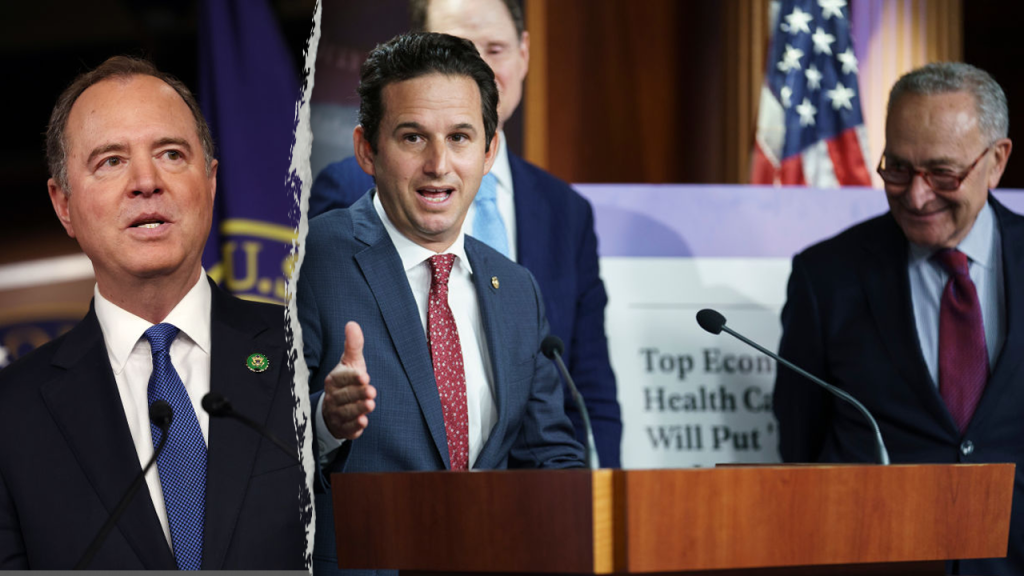Recent tensions between the Trump administration and several Jewish Democratic senators have surfaced, focusing on allegations of antisemitism on college campuses. A letter from Senators including Chuck Schumer and Adam Schiff has questioned the president’s motivations behind proposed penalties against Harvard University and other academic institutions. While they acknowledge the importance of combating antisemitism, the senators express concerns that these actions may serve as a pretext for broader political attacks on dissenting voices in the academic community.
| Article Subheadings |
|---|
| 1) Tensions Rise Over Antisemitism Allegations |
| 2) Political Reaction from Democratic Senators |
| 3) Trump’s Funding Freeze Explained |
| 4) Calls for Accountability and Details |
| 5) Broader Implications of Antisemitism Legislation |
Tensions Rise Over Antisemitism Allegations
In a notable escalation, five Jewish Democratic senators have openly challenged President Trump’s administration’s rationale for penalizing Harvard University and other institutions for alleged antisemitic behaviors on campuses. The senators are Chuck Schumer (New York), Adam Schiff (California), Jacky Rosen (Nevada), Brian Schatz (Hawaii), and Richard Blumenthal (Connecticut). They assert that the administration’s actions are more focused on political posturing than on meaningful efforts to combat rising antisemitism. This public letter represents a unified front among Jewish lawmakers who wish to address what they feel is a misguided approach to addressing a pressing issue.
Political Reaction from Democratic Senators
The senators are not only concerned about the impact of Trump’s actions but also the broader implications for academic freedom and political dissent in higher education. In their joint letter, they conveyed their discontent with Trump’s approach, interpreting it as a misuse of genuine concerns regarding antisemitism. “Dear President Trump, we write regarding your administration’s assault on universities,” they stated, highlighting their position as Jewish elected representatives who have consistently advocated against rising antisemitism across the nation. The letter further clarifies their commitment to combatting hate while questioning the motives behind the punitive measures.
Trump’s Funding Freeze Explained
The funding freeze against Harvard and similar institutions has drawn sharp criticism from these senators. They argue that such drastic measures are not only inappropriate, but potentially harmful to the institutions themselves, as well as to the discourse around antisemitism. The senators specifically criticized Trump’s decision to threaten the university’s tax-exempt status, labeling it as a “broad and extra-legal attack.” They voiced their alarm that these actions do not seem aimed at eradicating antisemitism but rather appear to target institutions that challenge Trump’s political ideology.
Calls for Accountability and Details
In their letter, the senators requested concrete data and specific examples that detail why certain colleges were targeted for federal funding freezes. They demanded clarity on the allegations against Harvard, inquiring about the specific antisemitic incidents that prompted the administration’s response. They emphasized the importance of transparency and accountability, pushing for the administration to reveal its legal justifications for such actions. Their inquiry serves to hold the administration accountable and examine the broader implications of its decisions.
Broader Implications of Antisemitism Legislation
Legislative efforts to address antisemitism on campuses have gained traction, with various lawmakers advocating for measures such as the Antisemitism Awareness Act introduced by Jacky Rosen and Tim Scott in early 2023. This act aims to enhance Congress’s ability to combat hate on college campuses. However, the recent actions by the Trump administration have complicated the landscape, raising questions about the motivations behind using antisemitism as a political tool. The senators have expressed a willingness to collaborate with Republican colleagues to develop effective strategies against hate, emphasizing that genuine efforts should not be overshadowed by political agendas.
| No. | Key Points |
|---|---|
| 1 | Five Jewish Democratic senators criticize President Trump’s actions against universities. |
| 2 | The senators express concerns over political motivations behind the funding freeze. |
| 3 | The letter calls for transparency and specific examples regarding antisemitism allegations. |
| 4 | Legislative efforts to combat antisemitism gain support amid rising concerns. |
| 5 | Senators emphasize unity in addressing hate while warning against political exploitation. |
Summary
The ongoing struggle against antisemitism in American society has found its way into political discourse, as evidenced by the recent public letter from several Jewish Democratic senators. They aim to challenge President Trump’s administration, arguing that its funding freeze and penalization of universities may serve broader political purposes rather than genuinely addressing antisemitism. Through their call for accountability and collaboration across party lines, these lawmakers are stressing the need for a united front in combating this pressing issue while safeguarding academic freedom.
Frequently Asked Questions
Question: Why are the Democratic senators challenging President Trump’s actions?
The Democratic senators are challenging Trump’s actions because they believe his measures against universities are not genuinely focused on combating antisemitism but instead serve as political attacks on dissenting institutions.
Question: What specific actions has President Trump proposed regarding universities?
President Trump has proposed freezing federal funding and threatening tax-exempt status for certain universities, including Harvard, in response to alleged antisemitic behaviors on campuses.
Question: What legislative initiatives have been introduced to combat antisemitism?
Legislative initiatives such as the Antisemitism Awareness Act have been introduced to strengthen Congress’s ability to combat rising antisemitism on college campuses and ensure appropriate actions are taken against hate.


